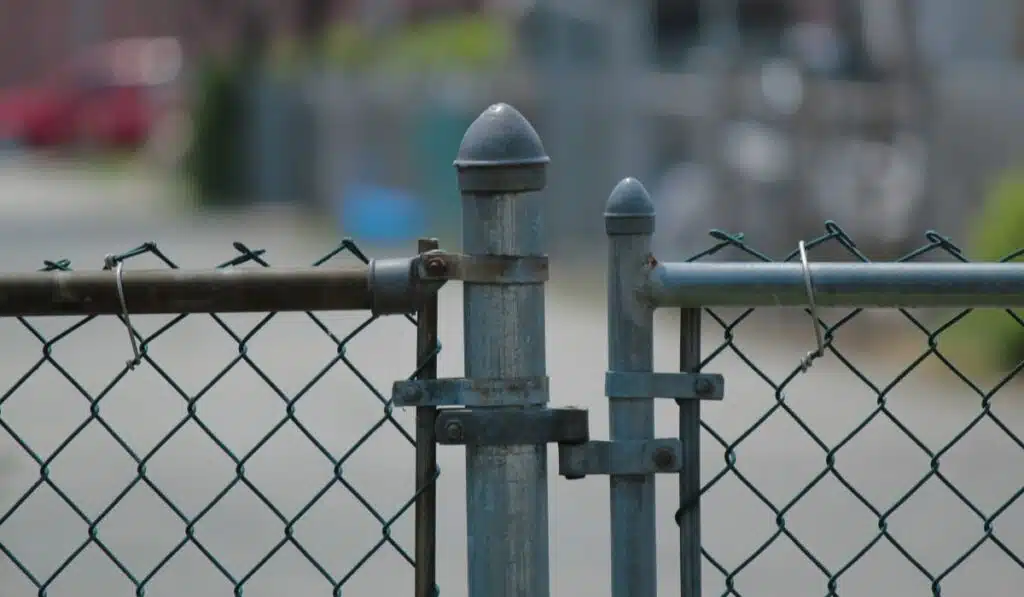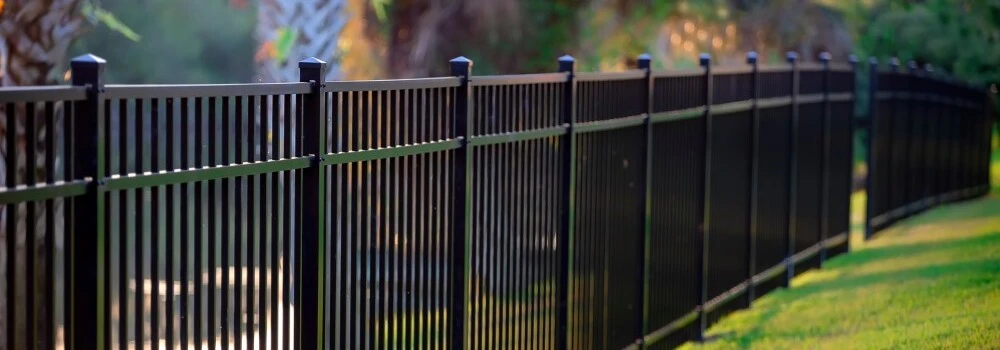
How to Choose the Best Chain Link Fence Gate Latch
Chain link fences are renowned for their durability and security, but their effectiveness heavily relies on the quality and functionality of their gate latches.
Choosing the proper gate latch is crucial to ensuring ease of access, security, and longevity of your fence.
In this guide, we’ll explore the key factors to consider when selecting a chain link fence gate latch so you can make an informed decision.
Types of Chain Link Fence Gate Latches
Padlock Latch:
Padlock latches are favored for their high-security features.
They typically consist of a latch mechanism and a hasp that accommodates a padlock.
This type of latch is ideal for areas requiring stringent security measures, such as commercial properties, storage facilities, and perimeter fences around sensitive areas.
Auto-Latching Gate Latch:
Auto-latching gate latches are designed for convenience and ease of use.
They automatically latch when the gate is closed, eliminating the need for manual locking.
This type of latch is practical for gates that are frequently opened and closed, such as garden gates or entrances to playgrounds.
Slide Bolt Latch:
Slide bolt latches operate by sliding a bolt into a bracket or receiver on the gate post.
They are straightforward in design and provide a secure closure.
Slide bolt latches are commonly used in residential settings where security and simplicity are prioritized.
Twist Latch:
Twist latches require twisting a rod or handle to secure the gate.
They are simple to operate and are often used for lightweight gates, such as those for small enclosures or garden fences.
Magnetic Gate Latch:
Magnetic gate latches use magnets to ensure the gate closes securely and stays closed until manually opened.
They offer smooth operation and are suitable for gates where convenience and reliability are essential, such as pool gates or garden entrances.

Key Considerations When Choosing a Gate Latch
Security:
Assess your security needs to determine the appropriate level of security for your gate.
For maximum protection, opt for a padlock latch or a high-quality auto-latching latch that can withstand tampering.
Durability:
Choose a latch made from durable materials such as stainless steel or galvanized steel.
These materials are resistant to rust and corrosion, ensuring longevity even in harsh weather conditions.
A durable latch will require less maintenance over time.
Ease of Use:
Consider who will be using the gate and how frequently it will be opened and closed.
Auto-latching and magnetic latches provide convenience for everyday use, while simpler mechanisms like twist latches may suffice for less often-used gates.
Compatibility:
Ensure the latch is compatible with the dimensions of your gate and fence posts.
Measure the thickness of the gate and post to select a latch that fits securely without gaps or instability.
Installation Tips
Positioning:
Install the latch at a height that is convenient for adults to reach without bending or stretching.
For most gates, this is typically around chest height.
Ensure the latch is aligned correctly with the gate and post for smooth operation.
Alignment:
Use a level to check the latch’s alignment before securing it in place.
Proper alignment prevents misalignment issues that could affect the latch’s functionality over time.
Hardware:
Select hardware such as screws or bolts that are suitable for your latch and gate material.
Use washers if necessary to prevent bolts from loosening due to vibration or frequent use.
Testing:
After installation, test the latch to ensure it opens and closes smoothly without resistance.
Make any adjustments needed to improve functionality, such as tightening screws or adjusting the latch mechanism.
Maintenance and Care
To prolong the life of your chain link fence gate latch, follow these maintenance tips:
- Regular Inspection: Periodically inspect the latch for signs of wear, rust, or damage. Replace worn-out parts promptly to prevent further deterioration.
- Lubrication: Apply a lubricant to moving parts such as hinges and latch mechanisms to avoid friction and to ensure smooth operation.
- Cleaning: Clean the latch and surrounding area regularly to remove dirt, debris, and rust. Use a mild detergent and water solution for cleaning.
- Seasonal Checks: Before each season, check the latch for any adjustments needed due to temperature changes or environmental factors that may affect its performance.
Conclusion
Choosing the best chain link fence gate latch involves considering factors such as security requirements, durability, ease of use, and compatibility with your fence and gate.
By selecting a high-quality latch and following proper installation and maintenance practices, you can ensure your chain link fence remains secure and functional for years to come.
Whether you prioritize security with a padlock latch or convenience with an auto-latching or magnetic latch, make an informed decision based on your specific needs.
Implement the tips provided to confidently install and maintain a chain link fence gate latch that enhances your property’s security and usability.
Ready to enhance your fence’s security with a reliable gate latch?
Contact Bravo Fence Company today to explore your options and get expert advice on choosing the proper latch for your chain link fence.
Contact us at Bravo Fence Company now!
FAQs
Why is choosing the right gate latch necessary for a chain link fence?
The gate latch is crucial for ensuring security, ease of access, and the longevity of your chain link fence. It determines how well the gate closes, locks, and withstands environmental conditions.
How do I choose the correct gate latch based on security needs?
Assess your security requirements; for high-security needs, choose a padlock latch. Auto-latching or magnetic latches offer convenience with moderate security.
What materials should I look for in a durable gate latch?
Opt for latches made from stainless steel or galvanized steel. These materials resist rust and corrosion, ensuring longevity in various weather conditions.
Which gate latch type is most accessible to use for frequent access?
Auto-latching and magnetic latches are convenient for daily use since they automatically secure the gate without manual locking.
How do I ensure the gate latch is compatible with my fence?
Measure the thickness of your gate and fence posts to ensure the latch fits securely without gaps or instability.
What installation tips should I follow for a chain link fence gate latch?
Install the latch at a comfortable height, ensure proper alignment with the gate and post, use appropriate hardware, and test its functionality after installation.
How can I maintain my chain link fence gate latch?
Regularly inspect for wear or damage, lubricate moving parts, clean with a mild detergent and water solution, and check before each season for adjustments.
Tags: Complete Guide to Chain Link Fence Benefits, Complete Guide to Chain Link Fence Gates, Complete Guide to Residential Chain Link Fencing, Everything You Need to Know About Chain Link Fence Materials, Explore Helpful Resources on Chain Link Fence Cost, Explore Helpful Resources on Commercial Chain Link Fencing, Inspiration and Tips on Chain Link Fence Privacy Slats, Inspiration and Tips on Durable Chain Link Fences, Top Ideas and Insights About Chain Link Fence Height Options, Top Ideas and Insights About Chain Link Fence Installation

